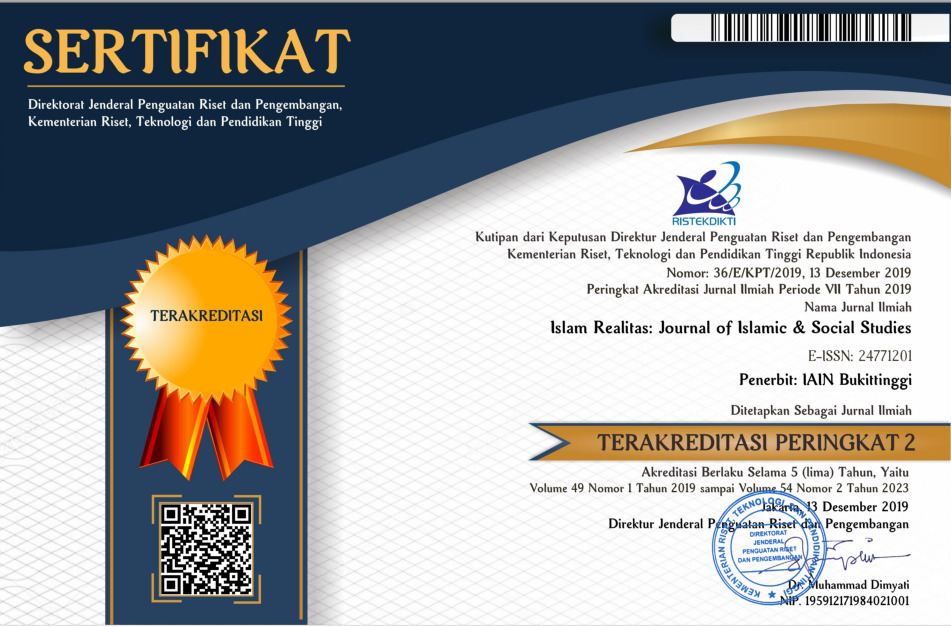STRATEGI PENGENALAN POTENSI ANAK
DOI:
https://doi.org/10.30983/fuaduna.v2i2.2069Abstract
References
Depdiknas, 2004. Pedoman Diagnostik Potensi Peserta Didik. Jakarta, Proyek Peningkatan Mutu SLTP.
Depdiknas, 2004. Tahap-tahap Perkembangan Peserta Didik, dalam Pedoman diagnostik Potensi Peserta Didik. Ditjen Dikdas Direktorat Pendidikan Lanjutan pertama.
Hand out mata kuliah Psikologi Inteligensi pada Program Pasca Sarjana Program Studi Psikologi UGM oleh Yapsir Gandhi Wirawan
J.P Guilford, 1971. The Nature of Human Intelligence, New York: Mc Graw Hill.
Munandar, Utami, S.C., 1992. Mengembangkan Bakat dan Kreativitas Anak Sekolah. Jakarta: Gramedia.
Monks dkk., 1996. Psikologi Perkembangan Pengantar dalam Berbagai Pengembangannya. Jogjakarta: Gadjah Mada University Press.
Nurul Iman (penterjemah), Motivation and Personality-Abraham Maslow. 1984. Jakarta: PT Gramedia.
Saparinah Sadli (editor), 1986. Inteligensi, Bakat, dan Test IQ. Cetakan I. Jakarta: Gaya Favorit Press.
Santrock, 1997, Life Span Development, TT.
Saifuddin Azwar, 2000. Tes Prestasi- Fungsi dan Pengembangan Pengukuran Prestasi Belajar. Jogjakarta: Pustaka Pelajar.
Syah, Muhibbin, 2001. Psikologi Pendidikan dengan Pendekatan Baru. Bandung: Rosdakarya
Downloads
Published
How to Cite
Issue
Section
Citation Check
License
Authors who publish with this journal agree to the following terms:
- Authors retain copyright and grant the journal right of first publication with the work simultaneously licensed under a Creative Commons Attribution-ShareAlike 4.0. that allows others to share the work with an acknowledgment of the work's authorship and initial publication in this journal.
- Authors are able to enter into separate, additional contractual arrangements for the non-exclusive distribution of the journal's published version of the work (e.g., post it to an institutional repository or publish it in a book), with an acknowledgment of its initial publication in this journal.
- Authors are permitted and encouraged to post their work online (e.g., in institutional repositories or on their website) prior to and during the submission process, as it can lead to productive exchanges, as well as earlier and greater citation of published work (See The Effect of Open Access).





